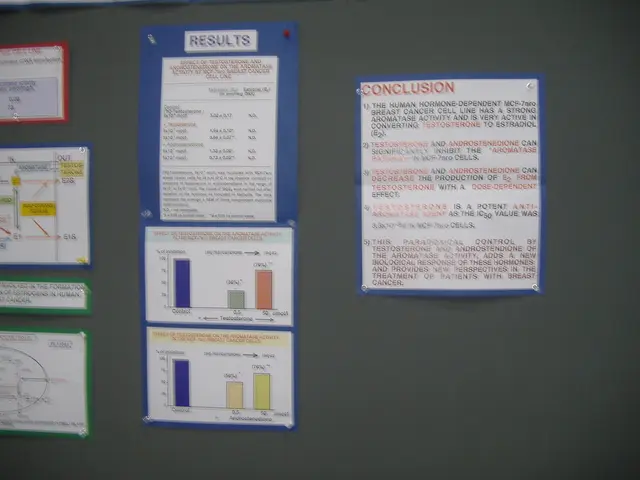"Gearing Up for Action" - EU Partners Anticipate Germany's New Government to Deliver on Promises
Partners within the EU harbor significant anticipations towards the incoming German government.
There's a palpable excitement among European partners over the prospect of the new German government. With British Foreign Secretary David Lammy expressing optimism, Finnish Foreign Minister Elina Valtonen voicing "high expectations," and Austrian Foreign Minister Beate Meinl-Reisinger eager to collaborate, it's clear that Germany's new governing coalition is perceived as a game-changer.
In the heart of Europe, the new government—an alliance between the CDU/CSU and SPD, under the leadership of Friedrich Merz—faces a daunting challenge of picking up the pace on crucial issues, most notably the turmoil in Ukraine and enhancing joint European defense efforts.
Valtonen explained her pleasure at Germany's reinstated government, emphasizing the need for a swift response to the ongoing war in Ukraine and Europe's collective defense. Czech Foreign Minister Jan Marian shared similar sentiments, anticipating more robust support for Ukraine and a harder line against Russia. These expectations not only reflect increased pressure on Germany but also underscore the intensified geopolitical challenges that the continent faces.
Austria's Foreign Minister Meinl-Reisinger spoke enthusiastically about meeting her German counterpart, Johann Wadephul, and emphasized the need for Germany to have a "European format" chancellor. This sentiment mirrors concerns that the EU needs committed leaders to navigate the complex landscape of global politics.
Despite some hiccups, such as the initial defeat of Friedrich Merz in the first round, both Finnish and British officials appear unfazed, looking ahead to a promising partnership between Germany and its EU allies. Britain and Germany are expected to continue dialogues on deepening relations, while the US-Europe dynamic and the escalating war in Ukraine remain key areas of focus for the EU.
In essence, the EU anticipates that the new German government will offer the necessary leadership, direction, and resources to help steer the continent through its multifaceted crises. These expectations center on defense, economic stimulus, and addressing the challenges posed by ongoing geopolitical uncertainties. The stage is now set for the new German government to demonstrate its commitment to its European partners and the shared future of the continent.
Sources: ntv.de, AFP
Enrichment Insights:
- The new German government, with a coalition between the CDU/CSU and SPD, represents a crucial moment for the EU as it grapples with external threats, political uncertainty, and the ongoing war in Ukraine.
- Strategic shifts in US defense and foreign policies under President Trump have exacerbated the need for Germany and the EU to act decisively and independently.
- The incoming government has committed to increasing defense spending, investing in infrastructure, and supporting Ukraine, with an ambition to provide strong leadership in European defense and foreign policy.
- The coalition agreement outlines bold targets for Europe, climate, security, and migration, though some policy areas remain open to negotiation and adaptation.
- In a move welcomed by EU partners, the new government has taken steps to loosen debt rules to enable higher defense spending, illustrating a readiness to invest in European security objectives.
- The stagnant German economy, in part due to external trade pressures and political uncertainty, further emphasizes the need for a coordinated EU response for both security and economic resilience.
- Amidst heightened geopolitical challenges, Finnish Foreign Minister Elina Valtonen expresses high expectations for Germany's new government, particularly in terms of their employment policy, as a response to EU's collective defense needs.
- In the context of policy-and-legislation, German's reinstated government, under Friedrich Merz, is anticipated to demonstrate a comprehensive employment policy, focusing on wholescale economic stimulus.
- British Foreign Secretary David Lammy, Austrian Foreign Minister Beate Meinl-Reisinger, and others view Germany's new coalition as a potential game-changer in Europe's general-news landscape, employing policy-and-legislation to address geopolitical issues like war-and-conflicts.
- In the realm of community policy, German politicians are expected to cooperate with EU partners to foster joint defense efforts, as voiced by Czech Foreign Minister Jan Marian with regards to the turmoil in Ukraine.
- During diplomatic meetings, discussions on policy-and-legislation involving various sectors, such as employment policy and European defense, are likely to occur via platforms like WhatsApp, promoting a more connected EU.








